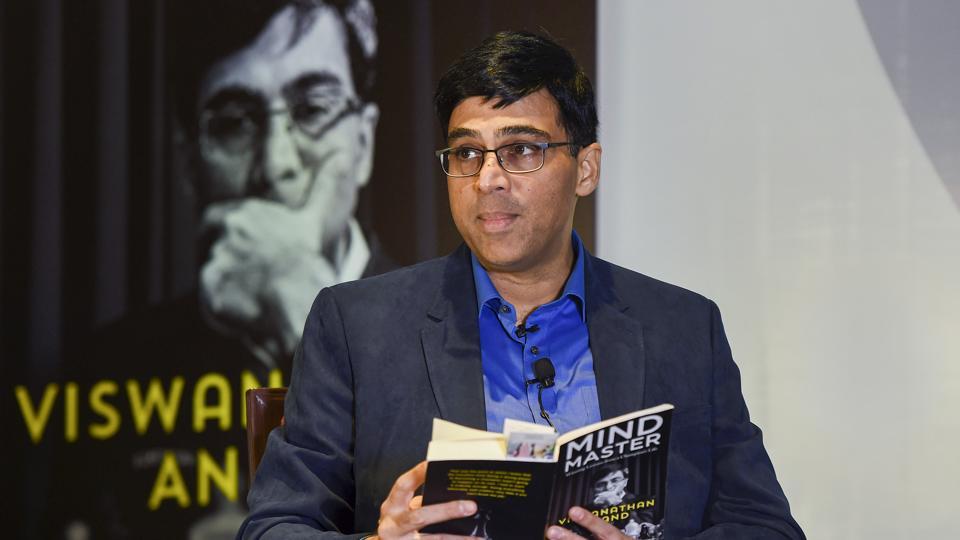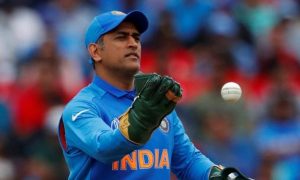Viswanathan Anand has been a pioneer in Indian chess. From becoming the first Indian Grandmaster to the only player to win the World Championship in three different formats (knockout, tournament and match play), to writing a book where he reveals his mental struggles at various junctures of his four-decade long career, Vishy has done things differently.
In Mumbai for the reading of his book Mind Masters organised by ‘Fincare’ of which he is a brand ambassador, Anand discussed his chess journey.
Excerpts:
Has your fellow players’ approach towards you changed over the years—say from when you won your first world title in Tehran in 2000 to when you lost the title to Magnus Carlsen in Chennai in 2013?
Inevitably (it did). For instance, after I won in Tehran, I was made conscious that it was only half a world title. It was frustrating. I did what I did. But it wasn’t my fault that the federation was divided. For a while, it was a chip on my shoulder. Then I won in Mexico and it got better. When I won the world championship, I thought it would put doubts to rest. Subconsciously, you are also trying to prove things to yourself. Probably the most interesting lesson for me is that once we stopped being rivals—me, (Garry) Kasparov, (Anatoly) Karpov, (Vladimir) Kramnik, there is genuine warmth as we realise that we have moved on. Recently, Kasparov sent me a very warm video message on my birthday (December 11). Five years ago he wouldn’t have done that but now so much time has passed.
In 2008, when you were playing Kramnik in Bonn, Kasparov spoke highly of you after your first win…
Yes, but here I detected genuine warmth and I thought that was (something) new.
Did you have similar experience with Karpov?
With Karpov, you could isolate things much more. When you played against him, he wouldn’t trust you. But after the game was over and if you went for dinner the same evening, he could relax. He had this ability to almost switch personalities and I had many enjoyable conversations with him even when I had a lot of complaints about him.
How do you analyse your career?
It has brought me a lot of joy. I have done things I wanted to. I feel I have inspired a lot of Indians to know more about chess and I feel pretty happy about it. Of course there have been ups and downs, but basically, I have been pretty satisfied.
Do you have any regrets?
There are hundreds of moments and games which I regret but you have to keep telling yourself, ‘well if you regret your losses, somebody else will regret his losses and then nobody will win a game’. These things happen because they (had to) happen. You can’t say ‘oh it should have been different’. Looking back now, I don’t have any regrets. I feel it’s a package, that’s how it comes—the good and the bad—I have no regrets.
Of the four titles, Mexico, Bonn, Sofia and Moscow, which one was the toughest?
The Kramnik match (Bonn 2008) and Mexico (2007) were the best events. The other two I remember for the intensity, the struggle. I don’t remember them so much as my chess achievement but as achievement because I struggled and I survived. The match against Gelfand (Moscow, 2012) was the worst I played and by that time I was more or less in a crisis. The crisis was building up but I didn’t have the time to think as my priority was to win the match. Yes, it was a very low period of my career.
Isn’t the 2013 loss to Carlsen (in Chennai) the lowest point?
Well, let’s put it this way. They (win over Gelfand and loss to Carlsen) were connected as the crisis that started before the Gelfand match was the one that destroyed me in Chennai and I see that as one long story. Chennai was a low point but it was also a relief because by that time I was almost relieved it was over. I was still struggling with my game and the World Championship title felt almost like a burden. The match was painful but there is a nice story: I lose the match and we go home and Aruna said ‘forget chess, what we have here is what we will never lose’, and then we were happy, it was bit of a relief.
You came back after that… (played Carlsen again in 2014 and lost)
Yes, I came back. It would have felt like a relief even if I had not come back. But of course I was very happy I came back because it gave me creative satisfaction.


























 WhatsApp us
WhatsApp us
Pingback: asigo system review
Pingback: كلمات
Pingback: belajar buat film komedi
Pingback: 24 hour plumber Martins Mill
Pingback: bothglow.com
Pingback: buy/order Jack Herer Oil Vape Cartridge online use for pain, anxiety, sleep for sale near me bulk in usa uk nz canada australia overnight delivery
Pingback: fake swiss copy bvlgari watches
Pingback: replica watches
Pingback: fan88
Pingback: web danh lo de
Pingback: diamond painting techniques
Pingback: cheap korina kova sex doll
Pingback: blazing trader
Pingback: bitcoin era
Pingback: Sig Sauer Guns for Sale
Pingback: 안전공원
Pingback: DevOps
Pingback: functional testing services
Pingback: fake rolex
Pingback: 메이저놀이터
Pingback: CI CD Solutions
Pingback: What is Digital Transformation
Pingback: Regression Testing
Pingback: fake bulgari watch replikas
Pingback: http://www.sellswatches.com/
Pingback: diamond painting
Pingback: euroclub
Pingback: facebook log in to my account
Pingback: Cenforce 100mg
Pingback: codeless tools
Pingback: dumps with pin 2022
Pingback: Federal Inmate Text Service
Pingback: Henry The Henry Original 44-40 Lever Action Rifle
Pingback: Pink Runtz weed Strain
Pingback: bullet journal template